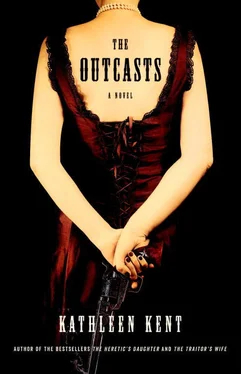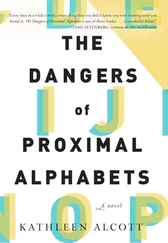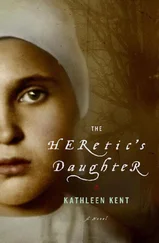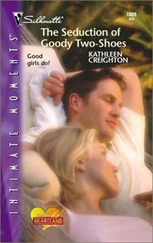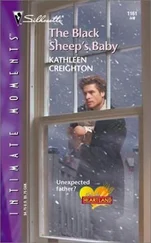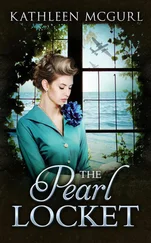The remaining two gators had closed the distance farther and Lucinda quickly calculated the amount of time left before the precise meeting of the surging bodies. The dog had, at most, only a few minutes. All eyes were on the captain, who stood poised with the stock of the rifle against his shoulder.
The dog was within a few feet of the boat, the gators perhaps the same distance behind, when the captain finally discharged the rifle, striking the closest creature midback. The wound, at first as white and dense as a man’s thigh, soon bubbled blood like a fountain, and the gator’s companion, without hesitation, turned and began to tear at the exposed flesh.
The dog swam abreast of the deck, and the fireman reached down, grabbed the long, wet fur with both hands, plucked the animal out of the water, and put him on the deck. The dog shook himself mightily and went to lie down, unperturbed by the events, in the shadow of the passenger cabin.
The men, and a few women, continued to watch as the remaining alligator ferried the carcass across to the far side of the river.
The boy had collapsed onto the deck, and the captain leaned over him and said, “Here ends the lesson.” The captain climbed back up to the steering cabin, and the boy gathered up his clothes and was helped inside by two of the older women.
Lucinda watched the dead gator float for a moment in the shallows and then saw it pulled under, with barely a resulting ripple, the persimmon tree on higher ground yet glorious and unmolested.
By midafternoon, the last of the passengers had stepped off onto the landing at Lynchburg, and she was alone, apart from the captain and fireman, for the last leg of the journey to Morgan’s Point at the true beginning of Galveston Bay. From there, she would be met by a cart sent to fetch her overland to Middle Bayou.
After the boat docked at the old Confederate pier, the captain handed her off the barge, along with her bag, and she stood in the shade of some abandoned barracks for a while, watching the road for an approaching rig. There was not another being in sight across the grasslands to the west and the marshlands extending far to the south.
Bored with waiting, she walked onto the pier and looked out across the greater bay. A cooling breeze whipped at her skirts, and she watched the sky haze over with mackerel clouds tinged pink with a late sun. A coral snake, disturbed by her footsteps on the wooden planks, swam into the deeper channel, and she wondered what form of gnawing, rending, stinging death would claim her if she were to jump into the water.
The clapper in the old kitchen bell stirred with the breeze, a resonant sound that put Lucinda in mind of a ship’s bell. She allowed herself to imagine a water voyage across the Gulf to Galveston, and then on to New Orleans, away from the grinding dirt and dust of beggared towns. Soon, he had promised her, they could go wherever they liked.
She heard the sound of a horse approaching and turned to watch a buckboard carriage with two occupants, both female, pull up the long, flat road to the barracks. She had expected her employer, a planter named Euphrastus Waller, to meet her. But when the carriage drew to a stop next to her, the driver was an unremarkable young woman with light hair and eyes, no older than seventeen. The younger girl sitting behind her, with arms draped around the driver’s neck, smiled, and Lucinda caught her breath. Through Kansas City and Abilene, she had seen women of wealth and status stand heel to heel with high-dollar whores, but she had never seen a more beautiful girl. If a virgin—and undoubtedly she was—this girl could earn more than a thousand dollars in a night over one bloodstained sheet.
“Are you Miss Carter?” the older girl asked.
Lucinda nodded. “I was expecting Mr. Waller to come for me.”
“This is his carriage. I’m Jane Grant. And this python about my neck is my sister, May.”
The girl unclasped her arms and sat back against the rear bench. “Mr. Waller is certainly not with us.” She laughed and patted the place beside her, saying, “Come sit here.”
“No, May. Miss Carter is sitting next to me.” Jane motioned for Lucinda to put her bag in the cart and climb onto the front bench.
No sooner had Lucinda settled herself when she felt May’s arms wrap tightly around her own neck. Jane waved her sister away and gave the reins a shake. “It’s nothing, Miss Carter. Her mind is often elsewhere.”
They rode in silence, shielding their eyes against the sun flattening itself on the western grasslands. The shadow of the cart followed behind them like a run of tar flowing into the general darkness of twilight. They stopped only once, when a feral pig, massive and tusked like an elephant, rushed onto the road. Its glistening snout, open-holed and almost obscene in its suppleness, tested the wind, but it was too weak-eyed to make a charge, and soon it waded into the tall brush on the other side.
For miles, Lucinda looked about for cabin light or campfires, but there was nothing man-made beyond the pale road she saw stretching ahead between the horse’s ears.
Deerling sat with a map spread out in front of him, positioned so that Nate and Dr. Tom could see the planned route. They ate supper while they studied it, finishing the last of the food packed by the boardinghouse woman in St. Gall. They had set up camp in the abandoned stone buildings of Fort Lancaster, and they were spent, having made fifty miles in three hard days, riding through country of steep mesas and hardscrabble depressions, crossing the mostly dry riverbed of the Pecos without incident. Barring accident or injury, they would be in Austin in a few weeks. From there to Houston was another one hundred and sixty miles.
Deerling pointed over the map. “We’ll pass through Forts McKavett and Mason, right through the heart of Edwards Plateau.”
“With full Comanche presence up this corridor until we get due east of Mason,” Dr. Tom said, sweeping his finger south to north. He turned to Nate. “You ready for this?”
Nate grinned; Dr. Tom had seen such a look of eagerness in boys looking to put a hammer to a percussion cap. “I imagine so.”
They sat for a while in the quiet, enjoying the last of the cornbread, which they dipped into their coffee. It seemed to Nate that Deerling was more at his ease, or perhaps only less guarded, after the Sunday in St. Gall. They had spent the entire morning at the immigrant church, housed in a large tent set with an odd assortment of chairs provided by the parishioners. An older settler standing at the front suggested to Deerling in broken English that he leave his guns outside. Deerling ignored the old man and found a place in the front row, where he sat with his arms crossed, as if preparing for an argument.
Soon after the preacher began his sermon, a group of large, kite-eared boys began to laugh and talk loudly.
Dr. Tom leaned towards Nate and whispered, “Hellfire’s comin’.”
Deerling stood up, passed in front of the preacher, who faltered in his sermon, and calmly walked to the row of chairs where the youths sat. He pulled one of the Colts from his belt and tapped the boy nearest to him none too gently over the head with the butt end. In the shocked silence of the tent, Deerling walked back to the pulpit, coming to stand behind the sermon giver. The ranger directed the shaken preacher, “Go on ahead with your lesson. Just think of me as the angel Gabriel.”
From that Sunday forward, Deerling had appeared as close to cheerful as Nate had yet seen him.
The food was soon swept away, and the weapons were brought out for inspection.
Deerling gestured to the Dance revolver and Henry rifle that Nate was cleaning and said, “You’re going to need to get more firepower than that.”
Читать дальше
